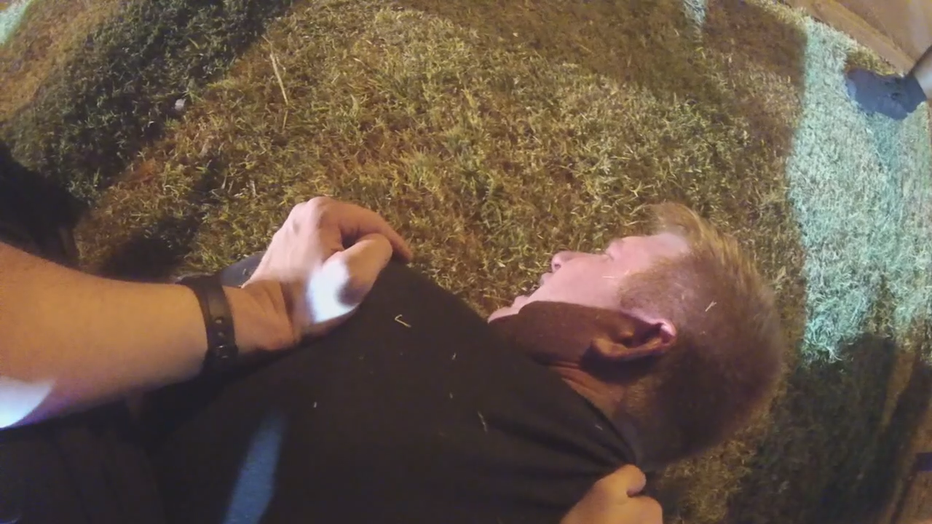Tony Timpa case: Dallas seeks rehearing of case after appellate court rules officers can be sued
Tony Timpa case: Dallas seeks rehearing of case after appellate court rules officers can be sued
The city of Dallas wants all 17 judges from three states who make up the Fifth Circuit Court of Appeals in New Orleans to re-hear the case involving officers being sued by the family of Tony Timpa. He died in police custody nearly five years ago.
DALLAS - The city of Dallas wants all 17 judges from three states who make up the Fifth Circuit Court of Appeals in New Orleans to re-hear the case involving officers being sued by the family of Tony Timpa. He died in police custody nearly five years ago.
The review is being requested after a three-judge panel from the federal appellate court ruled the officers had no qualified immunity from a wrongful death lawsuit.
It’s called an En Banc Review. It's rare, but it does happen.
Dallas officers don’t have qualified immunity in Tony Timpa case
"It is extraordinary, and it is granted less than one percent of the time," said Geoff Henley, Timpa’s mother’s attorney.
Timpa died in police custody in August 2016. He was placed in the prone position with an officer’s weight on his neck and upper back for more than 14 minutes.

Timpa called 911 for help in the middle of a mental health episode, off of his psychological meds and on cocaine. Body-worn cameras recorded the police’s actions at a bus stop on Mockingbird Lane.
Dallas files appeal of court ruling against 4 officers in Tony Timpa case
A lower court dismissed the wrongful death civil suit filed by his mother.
Last month, a three-judge panel from the Fifth Circuit ruled the case could go forward. The city of Dallas is now seeking a full-court review.
Dallas officers involved in death of man in custody said mocking him was part of their strategy
"They want to have the entire Court of Appeals reverse the panel decision, which was a 3-0 opinion in the Timpa family's favor,"
The ruling last month said the officers had no qualified immunity in this case because they should have known the prone position could cause death. Without qualified immunity, the officers are not protected from liability.
Attorney David Coale is not involved in this case but says it is going to be an important one.
"This is qualified immunity in a nutshell," he said.
In the petition for the rehearing, Dallas city attorneys press it was only after George Floyd died and with national debate around prone restraints that departments began changing policy.
The question is whether prior to the national debate the law in the Fifth Circuit made it clear that prone restraints were unlawful, and that every officer should have known that.
DA drops charges for 3 Dallas officers accused in man's death
"If it hasn’t been in place for a long, long time and been recognized by the federal cases on the issue, the city will argue it doesn't rise to the level of being clearly established and it doesn’t implicate the qualified immunity doctrine," Coale said.
It will likely take a couple of weeks before we know whether the entire Fifth Circuit will hear the case. If it opts not to, the city and the attorneys for the officers can appeal to the U.S. Supreme Court to hear arguments.

